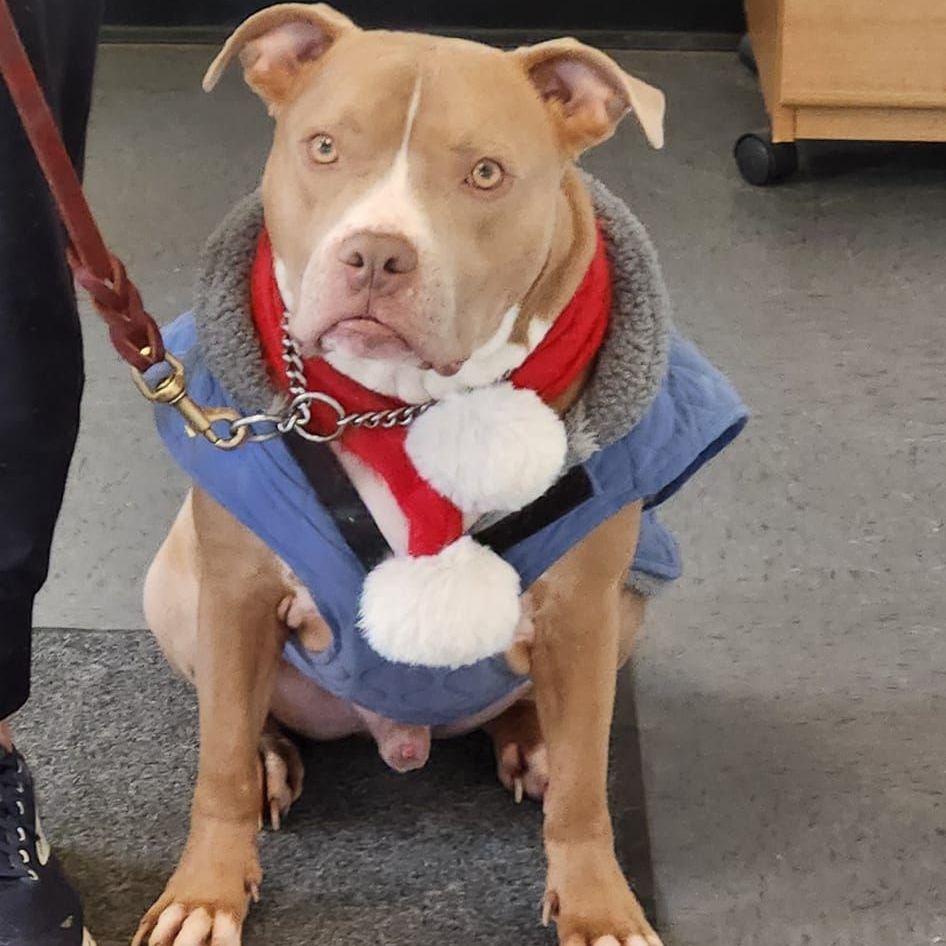A Fear-Free Approach to Training and Rehabilitation
Sue Battel, Certified Behavioral Trainer
For over 40 years, I've dedicated my life to helping dogs and their humans build a strong and loving bond. As a professional dog trainer specializing in rehabilitation for abused dogs, I've seen firsthand the devastating impact of fear-based training methods. My passion lies in guiding you on a journey towards a harmonious relationship with your dog, free from fear and built on mutual respect and understanding.
Building Confidence with Crate Training:
One of the cornerstones of a well-adjusted dog is a positive association with their crate. While it might seem daunting at first, crate training is a crucial step in providing your puppy or dog with a safe and secure space. It teaches them independence and helps them feel calm and comfortable, even when you're not around.
Start Early:
Introduce the crate early on, making it a positive experience with treats, toys, and praise.
Consistency is Key: Stick to a routine and be patient. Never use the crate as punishment. This is a critical point. It's crucial to emphasize that the crate should be a safe haven, not a place of confinement or punishment.
Create a Positive Environment:
Place the crate in a comfortable location, such as your bedroom or living room, where your dog feels included. This helps them feel like they are part of the family and not isolated.
Communicating with Your Dog: Avoiding Anger and Frustration
Dogs don't understand yelling or punishment. In fact, these methods can create fear and anxiety, making training more difficult and eroding the trust between you and your dog. Instead of reacting with anger, try to understand your dog's perspective.
Observe and Understand:
Pay attention to your dog's body language and behavior. This will help you identify their needs and triggers. For example, if your dog is exhibiting signs of stress (such as lip licking, yawning, or tail tucking), it's important to recognize these cues and adjust your approach accordingly.
Stay Calm and Consistent:
Maintain a calm and assertive demeanor. Positive reinforcement, such as rewards and praise, is far more effective than punishment. Yelling or physical punishment will only create fear and resentment.
Take a Break:
If you're feeling frustrated, take a deep breath and step away. Come back when you're calm and able to approach the situation with patience and understanding. This is crucial for both you and your dog. When you're frustrated, it's difficult to make rational decisions and communicate effectively.
The Importance of Emotional Energy
Dogs are incredibly sensitive to our emotions. If we're anxious or stressed, they'll pick up on it and may become anxious themselves.
Manage Your Stress:
Practice stress-reducing techniques like deep breathing and mindfulness. This will not only benefit you but also create a calmer environment for your dog.
Create a Calm Environment: A peaceful home environment will help your dog feel relaxed and secure.
Lead by Example: Demonstrate calm and confident behavior. Your dog will learn to mimic your energy. This is why it's important to be mindful of your own emotional state and how it might be affecting your dog.
Rehabilitation: A Journey of Trust and Healing
Rehabilitating an abused or anxious dog requires patience, understanding, and a deep commitment to their well-being. It's important to remember that every dog is unique and will heal at their own pace.
Build Trust Gradually:
Allow your dog to set the pace. Don't force interactions or push them beyond their comfort level. This is especially important for dogs who have experienced trauma.
Focus on Positive Reinforcement:
Reward desired behaviors with treats, praise, and affection. This builds a positive association with the training process and helps your dog feel confident and successful.
Celebrate Small Victories:
Acknowledge and celebrate every step of progress, no matter how small. This reinforces positive behavior and helps to build your dog's self-esteem.
My Mission: To Help Dogs and Their Humans Thrive
My goal is to empower you with the knowledge and tools you need to create a loving and fulfilling relationship with your dog. Through positive reinforcement training and a focus on building trust, we can help dogs overcome fear, anxiety, and behavioral challenges.
I believe in a holistic approach to dog training, addressing not only behavioral issues but also the underlying emotional and physical needs of your dog.
If you're struggling with dog training or looking for guidance on rehabilitating your furry friend, I'm here to help. Contact me today to schedule a consultation.
Share the Learning:



